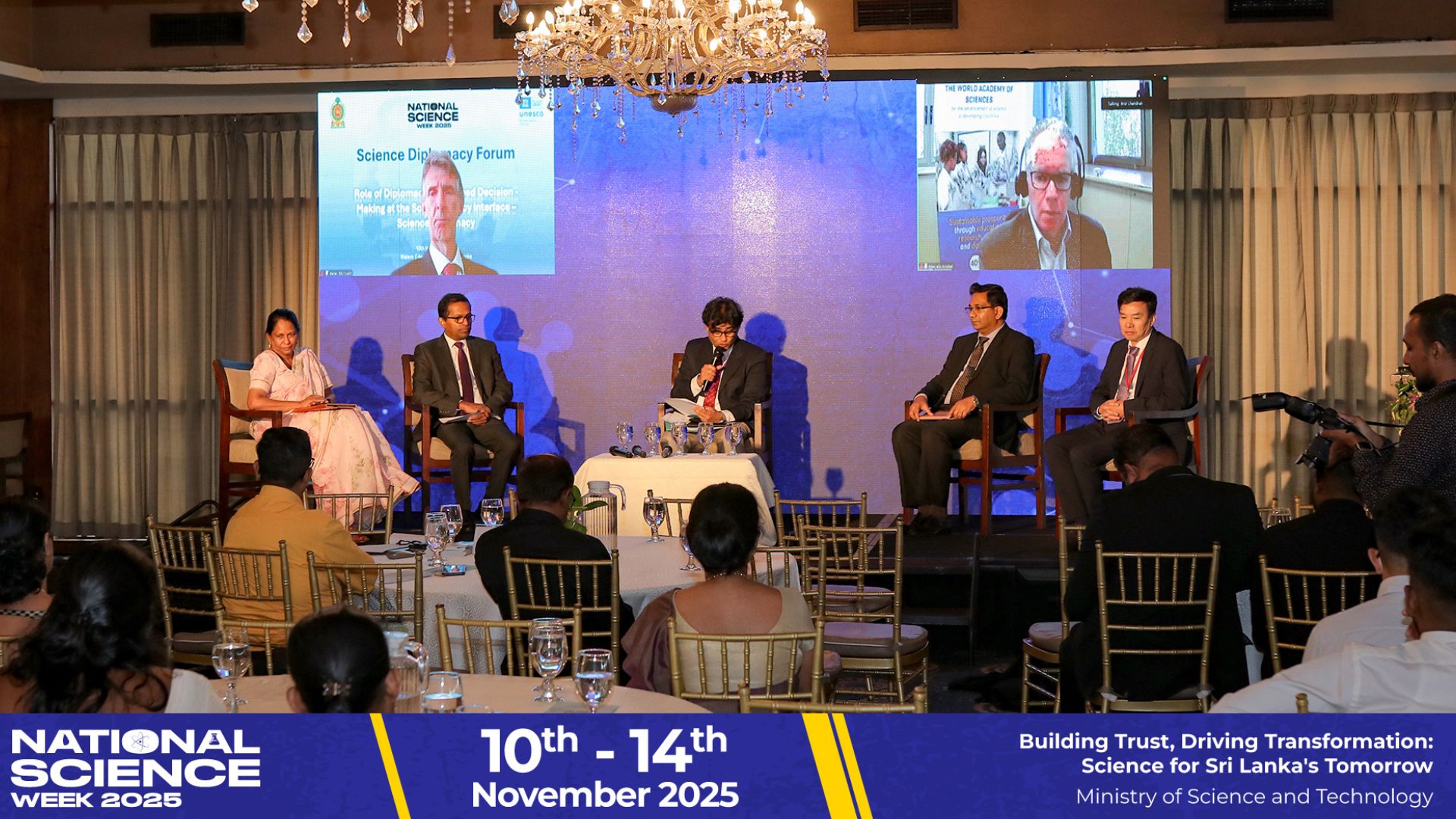On 10 November, TWAS took part in celebration of Sri Lanka’s National Science Day by contributing to a high-level forum about one of the most dynamic approaches to international science in the modern day.
The forum was on the role of diplomacy in informed decision-making at the science-policy interface and was held at Waters Edge in the nation’s capital, Colombo, during Science Week 2025. It brought together scientists, policymakers, diplomats, and international organizations to explore how science diplomacy can strengthen cooperation and support sustainable development.

Organized under the guidance of Y. L. Navavi, secretary to the Ministry of Science and Technology, the forum welcomed over 100 in-person participants and over 200 online, including representatives from universities, research institutions, diplomatic missions, and international organizations.
Sri Lankan Minister of Science and Technology Chrishantha Abeysena served as guest of honour, while Aruni Ranaraja, secretary to the Ministry of Foreign Affairs, Foreign Employment and Tourism, opened the forum with welcoming remarks.
The keynote address was delivered by Emeritus Professor Tan Sri Dr. Zakri Abdul Hamid, a TWAS Fellow since 1996 and former science advisor to the prime minister of Malaysia, who stressed the importance of international partnerships and regional cooperation in achieving the Sustainable Development Goals (SDGs). Timothy Curtis, director of UNESCO New Delhi, highlighted UNESCO’s efforts to promote cross-border scientific collaboration for sustainable development.
The technical session featured insights from Sirimali Fernando, former chairperson of the National Science Foundation of Sri Lanka, on aligning national research priorities with development objectives. Marcelo Knobel, Executive Director of TWAS, emphasized the transformative potential of science diplomacy in supporting evidence-based policymaking.
"Science diplomacy provides the essential bridge between the world of scientific discovery and the realm of policy action," Knobel said. "We believe that science is a universal language, a powerful tool that transcends political, cultural, and economic divides. It is this belief that places science diplomacy at the very core of our identity."
A panel discussion on “The Untapped Potential of Soft Power and Cooperation to Enhance Scientific Partnerships for National Development Goals” was moderated by Seyed Shahmy, an alumnus of the AAAS-TWAS Course on Science Diplomacy supported by Sida. The discussion highlighted how science diplomacy can serve as a powerful tool to build global partnerships and advance national development.
“Empowered by training from the AAAS-TWAS Course on Science Diplomacy, I'm thrilled to pave the way for an event and workshop on science diplomacy in Sri Lanka," said programme alumnus Seyed Shahmy. "I'm grateful for the knowledge and the network I attained, and am excited to drive impactful initiatives on science diplomacy in my country."
The forum concluded with a presentation by Peter McGrath, Coordinator of the InterAcademy Partnership (IAP) and of the TWAS Science Diplomacy Unit, who shared information on emerging opportunities in science diplomacy. A policy brief summarizing key recommendations from the discussions will be proposed for implementation in the near future.
Giovanni Ortolani

